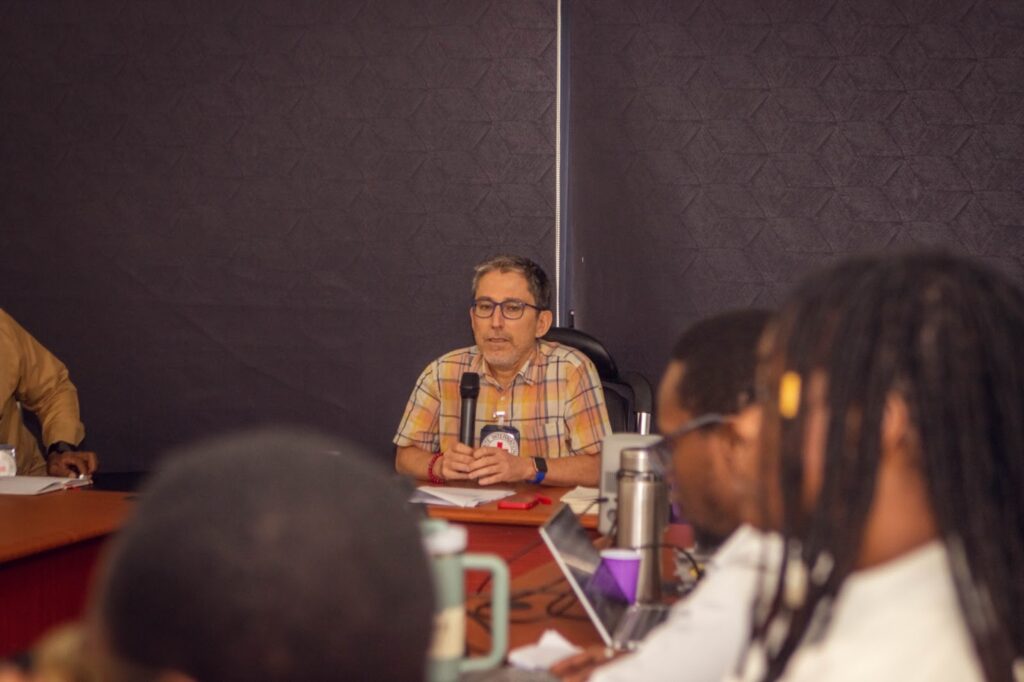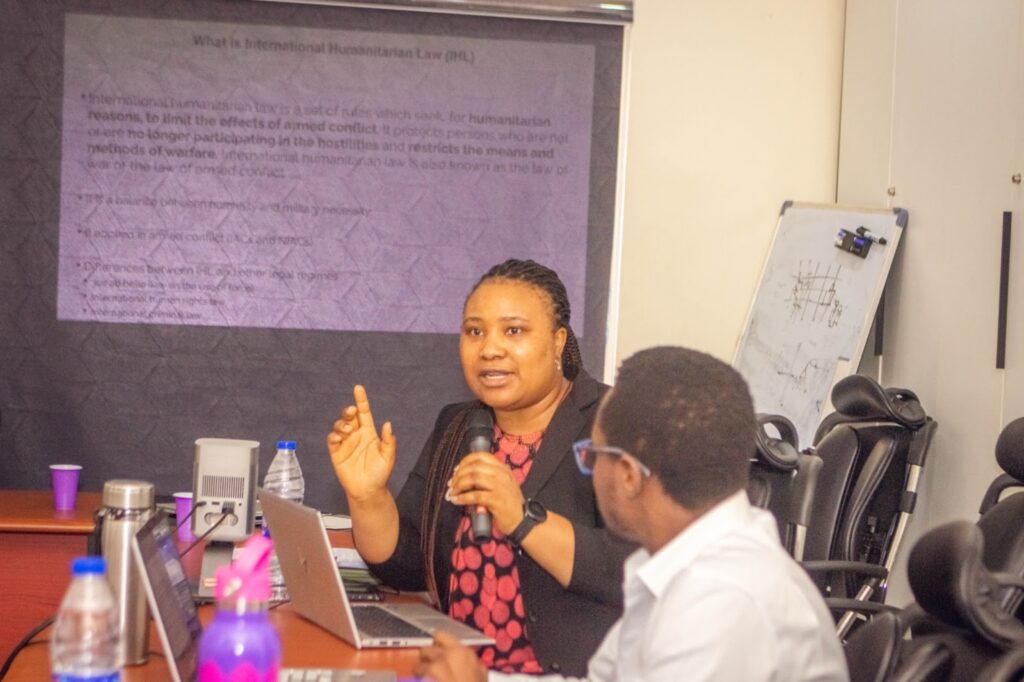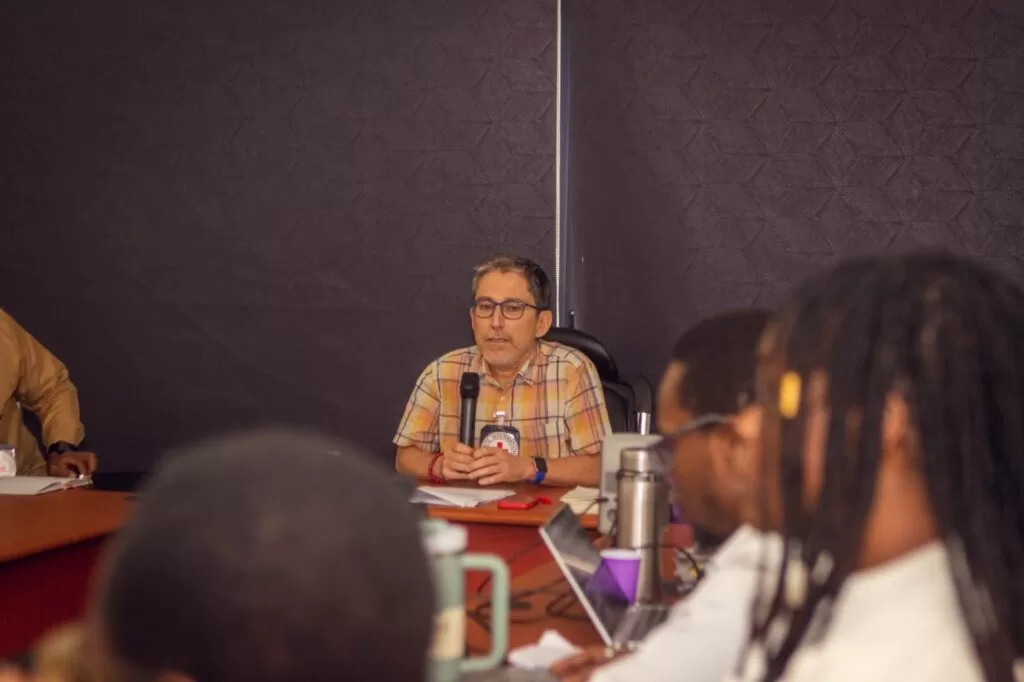The International Committee of the Red Cross (ICRC) has collaborated with HumAngle to provide specialised training for the newsroom’s reporters and staff on effectively reporting on missing persons and family separation in conflict situations. The two-day workshop, which commenced on Wednesday, Oct. 23, at HumAngle’s headquarters in Abuja, concentrated on best practices for handling sensitive information in crises and conflict zones.
“This training is vital considering HumAngle’s extensive work in reporting on displaced and separated persons in conflict-affected areas,” said Aliyu Dawobe, ICRC’s public relations officer.
Founded in 2020, HumAngle is a leading African publication covering conflict, development and humanitarian issues on the continent. For two years, we executed a missing persons project with support from the Open Society Initiative for West Africa (OSIWA). Recently, we reported on how the Nigerian Army raided Gallari village in north-east Nigeria ten years ago, arresting 42 men—a move that has since pushed the community to the brink of extinction. A video showcasing this investigation, along with another piece on a young boy whose parents were arrested during the peak of the Boko Haram insurgency, with his mother spending 11 years in detention before being released, kickstarted the training.
“Reporting that story filled me with a lot of questions,” Usman Abba Zanna, the reporter who documented the 42 missing men story, noted. “…especially after encountering the woman who lost sons and grandsons to the arrest. She has gone blind due to constant crying.”
The scourge of missing persons and separated families continues to devastate communities, particularly in northern Nigeria, where ongoing insecurity has created widespread displacement. HumAngle’s Missing Persons Dashboard provides names and details of over 3000 missing persons in Nigeria’s northeast alone. The ICRC’s work shows that the total figure is at least 25,000. In August, the ICRC reported a 75 per cent surge in the number of missing persons registered with the organisation in Africa over the last five years.
During the first training day, HumAngle’s Investigations Editor, Kunle Adebajo, provided a brief summary of the newsroom’s work on the issue so far. Participants explored the protection strategies and tools the ICRC has employed over the past seven years to trace and support those affected by conflict.

The workshop provided an in-depth look at the ICRC’s humanitarian work, tracing its history back to the Franco-Prussian War of 1870-1871, and explained the critical differences between missing and separated persons in times of conflict.
Additionally, Maryanne Ndip Gugong from the ICRC detailed the processes involved in reuniting displaced or missing persons, explaining search methods, identification and confirmation procedures, and tools, such as Red Cross messages and response certificates. She also discussed the operational challenges faced in handling such cases.
Tongret Shallom Gowon, a legal adviser at the ICRC’s Abuja office, led a session on the legal framework governing missing and separated persons in conflict to wrap up the day. She emphasised the need for journalists to be well-versed in international humanitarian laws and armed violence indicators to cover such cases responsibly, ensuring accuracy and respect for those affected.

“The ICRC is famous for how fiercely it protects its data, and I think that is something a lot of journalists have to learn,” said Hauwa Shaffi Nuhu, HumAngle’s Managing Editor, during her closing remarks. “I’m happy that we’ve been able to get a glimpse into how they do it.” She also thanked the ICRC for their continuous enthusiasm towards expanding HumAngle’s knowledge bank.
“This knowledge is empowering,” said Al’amin Umar, a Staff Reporter at HumAngle. “I left the training with an understanding that will impact my reporting of missing people. I will not only tell these stories but also contribute to reuniting families torn apart by conflict.”
The International Committee of the Red Cross (ICRC) teamed up with HumAngle to offer specialized training for reporters on covering missing persons and family separations amid conflicts.
The workshop emphasized best practices for handling sensitive crisis data and highlighted HumAngle’s extensive work on displaced individuals in Africa.
HumAngle has been documenting these issues, most notably a village in Nigeria brought to the brink due to military actions, shedding light on the human toll of such conflicts.
The ICRC noted a significant rise in missing persons in Africa, reinforcing the importance of accurate and responsible journalism in these situations. Sessions covered topics from the ICRC’s humanitarian history to strategies for searching and reuniting families, underscoring the importance of legal knowledge for reporting on armed conflict responsibly.
The collaboration between HumAngle and ICRC aims to enhance reporting quality, empowering journalists to tell impactful stories about missing persons and aid in reuniting them with their families.
